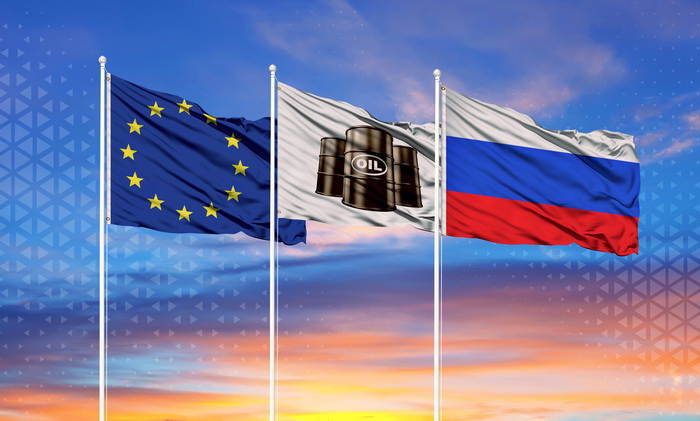Since 24 February, total fossil fuel exports from Russia only by maritime shipments and pipelines are estimated at €63 billion. The EU accounts for 71% of this amount (€44 billion). And at the same time, exports of coal and gas from Russia are growing - this is the analysis of the Center for Energy and Clean Air Research (CREA).

“We see that the 'green transition' of the EU is too slow. Not enough has been done yet, as these strategic intentions aren’t affecting Russia's revenues from fossil fuel exports in the short term. And this is important to stop the killing of innocent Ukrainians and prevent the spread of hostilities to other countries today," said Kostiantyn Krynytskyi, the head of the energy department of the NGO "Ecodia".The analysis shows that Russia is redirecting cargoes that are not accepted by European buyers. There is a clear increase in oil supplies to India, Egypt, and other "unusual" destinations for Russian exports. However, supplies to new destinations are not enough, according to analysts, to offset the decline in exports to Europe.

"In order to stop the war in Ukraine, it is necessary to end the dependence on fossil fuels in the world. That is why we support the initiative to establish a Fossil Fuel Non-Proliferation Treaty at the UN level, which should ensure an orderly transition from fossil fuels to clean renewable energy sources, joining the calls of 101 Nobel laureates and more than 2,750 scientists from around the world. We do not have time to wait for the sake of lives of Ukrainians and the lives of the entire planet, which is suffering from the effects of global warming caused by the use of fossil fuels,” said Oleh Savytskyi, a member of the board of the NGO “Ecodia”.A quarter of Russia’s fossil fuel shipments arrived in just six EU ports. The largest ports receiving fossil fuels from Russia are Rotterdam (estimated value of shipments €1,500 mln) and Maasvlakte ( €1,200 mln) in the Netherlands, followed by Trieste (€1,000 mln) in Italy, Gdansk in Poland, and Zeebrugge and Antwerpen in Belgium. Stopping shipments to these ports alone would have eliminated 23% of seaborne demand.

"The EU pays about a billion euros a day for Russian energy. Germany is one of their largest consumers and is therefore a major sponsor of the war machine in Ukraine. Ukrainian climate activists have written an open letter to the German Bundestag demanding full and immediate embargo on Russian gas and oil to end the war in Ukraine. We expect unanimity on this issue as soon as possible, despite the work of Russian lobbyists, who are working every day to preserve existing markets and expand their bloody fuel supplies, which holds the entire world hostage," said Svitlana Romanko, coordinator of the Stand With Ukraine campaign.There is still a significant demand for Russian hydrocarbons from private businesses. Analysts have found supplies to facilities or vessels associated with oil companies: Exxon Mobil, Shell, Total, Repsol, BP, Lukoil, Neste and Orlen and Trafigura; power utilities RWE, KEPCO, Taipower, Tohoku Electric Power, Chubu Electric Power, TEPCO, Kyushu Electric Power; and industrial companies Nippon Steel, POSCO, Formosa Petrochemical Corporation, Mitsubishi, Hyundai Steel, Sumitomo and JFE Steel. Representatives of the UN Global Compact in Ukraine note that large oil companies, energy suppliers and industrial enterprises with significant environmental obligations must voluntarily impose an embargo on Russian hydrocarbons in order to meet the ESG (Environmental, Social, and Corporate Governance) objectives.

"The math of war is simple - more than a quarter of Russia's federal budget is used for military programs and finances the war in Ukraine. At the same time, a third of the federal budget revenue is hydrocarbon exports. Businesses have more leverage to reorient than governments. Undoubtedly, Russia's actions are qualified by the world community as war crimes. Therefore, cooperation with Russia will directly affect the company's reputation, market value, and compliance with the Sustainable development goals,” said Olha Yevstihnieieva, Coordinator of environmental programs, Global Compact Network Ukraine.
The Center for Energy and Clean Air Research (CREA) encourages all governments and corporate buyers of Russian fossil fuels to take decisive action, including introducing special tariffs on Russian fuels.

"We advise to stop supplying Russian fuel to third parties, set tariffs on imports from Russia, which will encourage buyers, if possible, not to buy in Russia and limit the price paid to Russian suppliers on spot markets, and develop a plan to replace Russian fossil renewable fuels, energy efficiency, and energy-saving measures,” said Lauri Myllyvirta, a leading analyst at the Center for Energy and Clean Air Research (CREA).
Related:
- Whole world must unite against fossil fuels, dictators & wars – Ukrainian NGO
- Pacifism: a very expensive European illusion
- Russia’s war destroys Ukraine’s economy, spurs global food and economic crisis
- The scope of the EU energy dependence on Moscow and practical ways out
- French companies continue doing business as usual in Russia
- As Russia’s war against Ukraine escalates, the threat of hunger looms over the world

